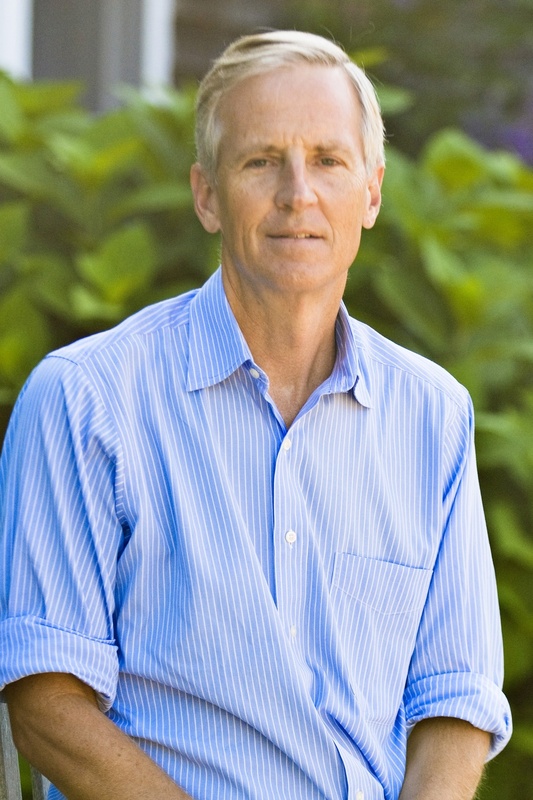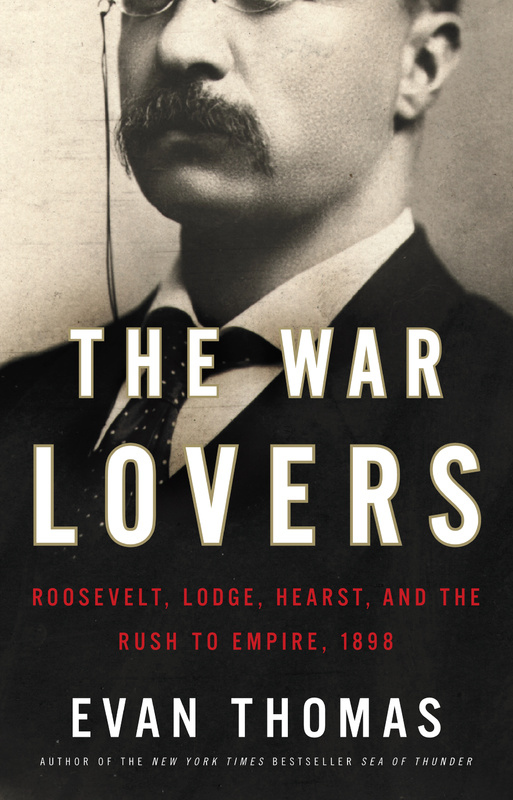Athough his name does not appear in the subtitle of Evan Thomas’ “The War Lovers: Roosevelt, Lodge, Hearst, and the Rush to Empire, 1898,” Thomas Brackett Reed of Portland is the tragic character of the book.
Czar Reed, as he was known, was Speaker of the House, had been considered for president and made historic changes in the House rules that allowed government to function better. Yet his opposition to American imperialism and the drive to a war against Spain ended his career.
The book tells the story of how close friends Sen. Henry Cabot Lodge and Theodore Roosevelt, along with editor William Randolph Hearst, conspired to force a war as part of what Lodge called his “Large Policy” of having the United States grow. Opposing the war were Czar Reed and psychologist William James.
Evan Thomas is an editor-at-large at Newsweek, a frequent contributor to the television show “Inside Washington” and author of six earlier books.
Q: I heard you Tuesday on Imus – an appearance which can sell a lot of books nationally – and now you are coming to Kennebooks, a small but good Maine bookstore, which can sell you a few books. Why Kennebunk?
A: Because one of my characters, Thomas Brackett Reed, grew up in Maine and was an important Maine figure in history. That is the Maine connection.
Q: Since you mentioned him, I’ll skip to my Reed questions. People around here know his name or his nickname, Czar Reed, and probably that he was Speaker of the House but not much else. Tell us about him.
A: The three war lovers had this passion to go to war, a passion that William James understood but was against, asking people not to succumb to it. And then there is Reed, who asks, “Why are we fighting this war; there is no apparent reason.”
That was a good common-sense question to be asking. He was one of the most powerful people in Washington at this time, but he could not stop this tidal wave of war. This ended his career; he went to New York and became a lawyer, and died shortly thereafter.
In the small world of Washington at this time, he was friends with two of my hawks, Lodge and Roosevelt. They were both powerful supporters of Reed and pushed him for president in 1896, but the friendship broke up over the war.
Q: In addition to being speaker, are there any accomplishments for which we should remember Reed?
A: He changed the rule in Congress to make it impossible for minorities to filibuster in the House. They needed a powerful guy. Congress had become dysfunctional, and Reed broke that, changed the proceedings so government could actually govern. Congress dealt with different things then, tariffs and mercantile things, but Reed made everything work by getting rid of the obstructions.
He was a very smart guy. Politicians of the last century were not respected for their great intellect. They were political hacks, part of the machine, or had seats bought for them. But Reed kept a diary in French, was well read, had a sense of humor and wasn’t too pompous.
I sure wish there was one like him today. We really don’t have anyone like him now. He was a success until he wasn’t, and one of the dramas of the book is his losing power and his friendship with Roosevelt and Lodge. He doesn’t even show up for the last vote, when America voted to annex Hawaii.
Q: Roosevelt is regarded as a good to very good president, yet he become president because of his warmongering – and perhaps hiding the truth of the USS Maine explosion. Should that tarnish the public’s opinion of him?
A: I think Roosevelt was a great president, one of the very best, and that he belongs on (Mount) Rushmore because of his great, progressive policies and being able to use the government for good.
And he was not a warmonger as president. His phrase was talk softly and carry a big stick, but he never used that stick. He kept us out of war. One point I am trying to make is that he was a war lover as a young man, and he got it out of his system. He charged up the hill and shot a Spaniard with his Colt .45 and got it off his chest.
The fever returned after he left the presidency. In World War I he goes to President Wilson and says, “Let me raise a division to fight in France.” Wilson wisely said no.
Q: How did you get interested in the topic of this book – war fever?
A: In my other job I am an editor at Newsweek, and I was struck by how the young have a need to go to war to prove themselves. I went back a century in time to find a similar situation, a classic adventure for the war lover.
Q: Before World War II there was no war fever. Churchill and a very few others recognized the danger of Hitler. Is that because there was so little time since World War I?
A: World War I was so close, and so awful. People went to war so gaily, and a whole class was wiped out. Eton lost what amounted to three full classes in the war.
Britain lost 40,000 soldiers in one day. The shock of that disgraceful war stayed with people for a long time, until Churchill came along to wake them up.
Q: William James seems to be the odd man out in the people you profile. He was not a decision maker but an observer. How did you decide to include him?
A: I see him as sort of a Greek chorus who kind of narrates what the people are doing and thinking. He was a professor at Harvard when Roosevelt was there, and was vice president of the Anti-Imperialist League, so he did have a role.
He gave a very good comment in a speech in 1897 dedicating the Shaw Memorial at Harvard for Col. Robert Gould Shaw, whom you may remember from (the movie) “Glory.” This white had taken this black regiment in the Civil War and died in a charge.
(James) said that we are here to celebrate war or heroism at war, and that is a fairly common thing. But Shaw should be remembered for his “lonely courage” of going to war with a black regiment instead of a bunch of people like him. He did the right thing in this civil context.
Q: If there is one lesson you would like people to take from this book, what is it?
A: Unfortunately, it is the lesson that never will we escape the attraction of war. There is a quote in a book about Robert E. Lee saying, “It is well that war is awful lest we love it so much.”
Q: Does that mean that if we want peace we should elect people who have been to war?
A: There may be something in that. President McKinley had seen action in the Civil War, and he did not want war. Maybe it is better to have people who have actually seen war so they wouldn’t glamorize it.
If you go back to Vietnam and (David) Halberstam’s “Best and the Brightest,” and look at the people: Jack Kennedy had seen some action and didn’t want war. Mac Bundy had been a staff person, and never saw action. Bob McNamara was a staff guy, not because he didn’t want to go but because he was so good with numbers. So you can’t help but think that if a man has seen some war he might not be so quick to run into one.
Q: What’s next?
A: I’m working on a book on Eisenhower, about how a warrior kept us out of war in the 1950s, and about how determined and steady he was. Like we were just talking about.
Eisenhower had seen a lot of war, had seen the daily bloodshed and sent men to their death. Eisenhower really hated war, and that is something that hits home now.
Staff Writer Tom Atwell can be contacted at 791-6362 or at:
tatwell@pressherald.com
Copy the Story LinkSend questions/comments to the editors.




Success. Please wait for the page to reload. If the page does not reload within 5 seconds, please refresh the page.
Enter your email and password to access comments.
Hi, to comment on stories you must . This profile is in addition to your subscription and website login.
Already have a commenting profile? .
Invalid username/password.
Please check your email to confirm and complete your registration.
Only subscribers are eligible to post comments. Please subscribe or login first for digital access. Here’s why.
Use the form below to reset your password. When you've submitted your account email, we will send an email with a reset code.